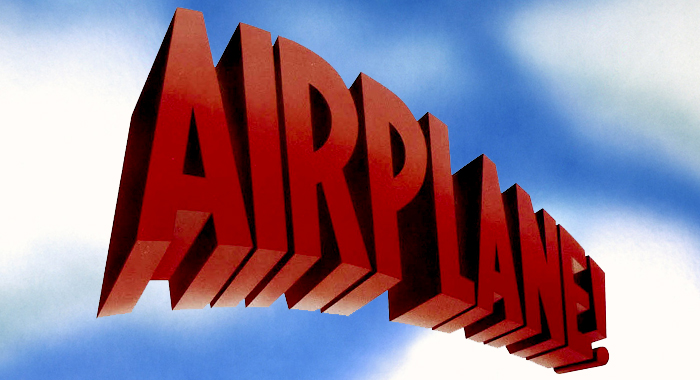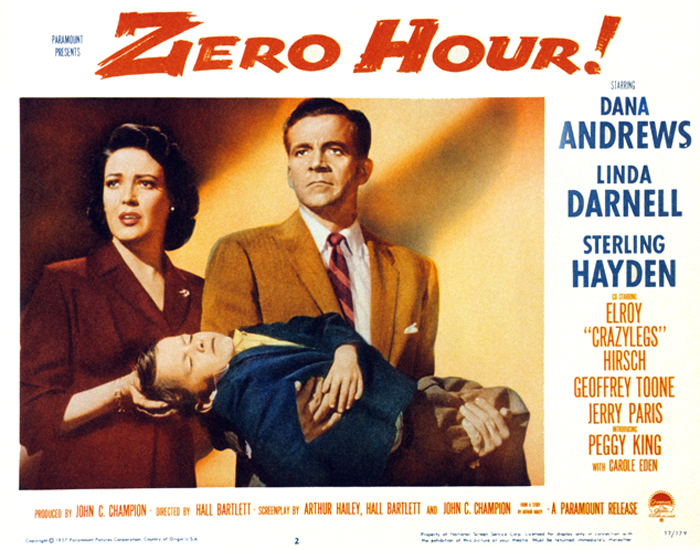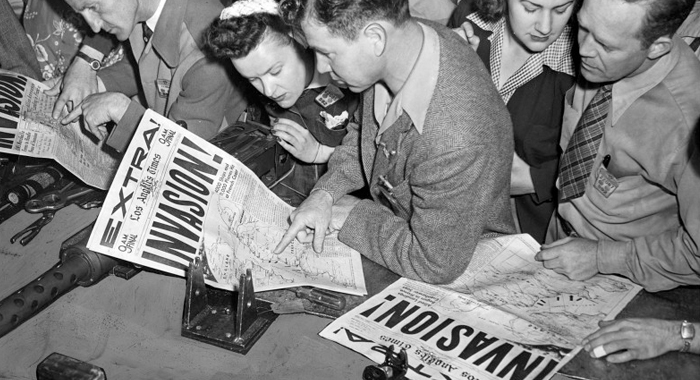
(Photo by Paramount Pictures)
The movie Airplane!, which celebrates its 40th anniversary on July 2, is routinely regarded as the crème de la crème of spoof films.
Filmmakers Jim Abrahams and brothers David Zucker and Jerry Zucker’s goofy comedy is meant to be a send-up of the Airport movies of the 1970s — which capitalized on large star-studded casts and even larger theatrics — as well as other films. It’s Certified Fresh at 97% on the Tomatometer, and decades after its release, it still regularly makes it onto people’s lists of favorite comedies, even as the spoof comedy has fallen out of vogue.
Simply put, Airplane! works because it covers something that is deathly serious — an airline disaster — but doesn’t take itself too seriously. In addition to an inflatable cockpit “autopilot” named Otto and Lloyd Bridges’ increasingly frantic control tower supervisor — he picked the wrong week to quit smoking, drinking, taking amphetamines, and sniffing glue — there’s a running joke centered on whether Leslie Nielsen’s Dr. Rumack understands the difference between the woman’s name Shirley and the adverb “surely.”
But, even prospective first-time viewers who might balk at the spoiler-heavy paragraph above would clearly have gotten a sense of what kind of film Airplane! is from its title alone. Or, more specifically, from the exclamation point in its title.
“An exclamation point is usually used for a different meaning… like a strength or importance or [to get you to] pay attention,” says Mike Kaplan, a film marketing strategist also known for his extensive collection of vintage movie posters. “With Airplane!, as I remember it, it’s a satire on the other movies that have used it. It’s an interesting jumping-off point for sure.”
Kaplan, who worked on posters and campaigns for films like A Clockwork Orange, says it’s not necessarily a bad thing to see punctuation used in cinematic titles or posters as long as it “works organically” and doesn’t have the “feeling that it’s been manipulated.” The point is to not be bothered by it, to almost forget it’s there.
Before we spoke, he said he never paid much attention to the use of the symbol. He then remembered he’d worked on a couple campaigns that used it, including director Lindsay Anderson’s 1973 dramedy, O Lucky Man!, which stars Malcolm McDowell. Kaplan participated in a documentary about Anderson in which McDowell tells the story that the film was originally meant to be called Lucky Man, but that Anderson changed the title after reading the treatment because, Kaplan says, “that’s signifying it’s more important, and that a title like ‘Lucky Man‘ could mean… you’re lucky for different things. But O Lucky Man! gives it a universality and importance, almost a philosophical statement.” Kaplan says he remembers the exclamation point coming in around when he did the film’s first title treatment. Anderson, whom he recalls had distinct handwriting and always wrote with red Pentel pens, responded back by noting a red exclamation point next to the title. Kaplan says it was “just the icing on the cake.”

(Photo by Warner Bros. Pictures)
As with O Lucky Man!, the exclamation point in Airplane! does a lot of the heavy lifting from a marketing standpoint. The symbol is almost shouting to the audience that the film doesn’t take itself too seriously and that some zany hijinks are in store.
But this wasn’t always the case. The exclamation point used to be revered, and it was only used to signify grandeur and grab your attention. You see it in the 1960s musicals Hello, Dolly! and Oliver!.
Robert Lee, a musical theatre writer who is on the faculty of the Graduate Musical Theatre Writing Program at NYU’s Tisch School of the Arts, says he doesn’t know for sure why either of those two musicals has an exclamation point in its title, although he points out that both are set in the 1800s and “trade in nostalgia.” He wonders if they’re there to channel “old-time theater handbills” from an era when literacy rates were lower and when the exclamation point was used as a sort of punctuational carnival barker on posters to grab your attention. He also adds that both are titles derived from the leads’ names and songs sung about them.
Both were also known for show-stopping numbers, and their trailers create the feeling that these are films the whole family cannot miss (even though the latter’s focus on starving London orphans isn’t exactly a happy-go-lucky topic).
They’re also both based on stage productions, a medium that has a long love affair with the symbol. The double-punctuated musical revue Oh! Calcutta!, which debuted Off-Broadway in 1969, has what a 2015 New York Daily News article describes as “a pair of grammatical jazz hands.” The article quotes a branding specialist who says the title for that production works because “it brings urgency, excitement and humor.”

(Photo by Warner Bros. Pictures)
Abrahams and the Zucker brothers wrote the screenplay for their comedic masterpiece based on the 1957 film Zero Hour!, a World War II drama from director Hall Bartlett that takes itself extremely seriously (the Zuckers bought the rights to the film, so there’s no issue of copyright infringement). A a representative for David Zucker confirms that the filmmakers kept the exclamation point in their film’s title for that reason. They would go on to use it for other screwball spoofs like Top Secret! (a parody on both musicals and Cold War-era spy films) and their TV series Police Squad! (a knock on cop dramas), the precursor to the Naked Gun films.
Henry Fuhrmann is a professor at University of Southern California’s Annenberg School of Communications and Journalism and a former chief of the Los Angeles Times copy editing desk – where he had a reputation, among myself and others, for his extreme distaste for the exclamation point. During our interview, he thinks of classic front-page headlines where the exclamation point was unavoidable, such as the one for D-Day that screamed “Invasion!” But he also references the F. Scott Fitzgerald quote: “Cut out all these exclamation points. An exclamation point is like laughing at your own joke.”

(Photo by Douglas Aircraft Co./Los Angeles Times)
He says that exclamation points were usually thought to be unnecessary in formal writing, because if a sentence “has the right active, strong verb, it will connote the tenor of the drama that you’re trying to say.”
Fuhrmann says it’s a testament to Airplane! that not including the exclamation point is “an obvious error to anyone” because “you just know it’s a part of the title.” Brands like Yahoo!, which also uses the punctuation symbol, do not get the same kind of respect.
“It definitely works in Airplane!,” he says, because “it’s just a small thing with potentially great power, and that’s what makes punctuation so interesting.”
But the advent of social media has made us crave an even stronger hit of punctuation endorphins. Fuhrmann points to Gretchen McCulloch’s 2019 book Because Internet: Understanding the New Rules of Language. There, McCulloch argues that our language has evolved so that the exclamation point connotes “warmth or sincerity, rather than just excitement.” The Comedy Central series Corporate, a dark satire about white-collar desk jockeys, directly addresses this. A broken keyboard forces one of the leads to stop using exclamation points in his emails, resulting in his bosses feeling personally attacked.
https://twitter.com/ComedyCentral/status/1092517599831822336
However, McCulloch equates the overuse of exclamation points to “hyperbolic adjectives” — like the word “awesome” — that “lose their force through overuse.” These days, an exclamation point just doesn’t convey as much as it used to. Does this mean that any potential remake of Airplane! will inevitably require multiple exclamation points in its title? Surely you can’t be serious.
FandangoNOW (rent/own), Amazon (rent/own), Google (rent/own), iTunes (rent/own), Netflix (stream) Vudu (rent/own)
Airplane! was released on July 2, 1980.
Thumbnail image by Paramount Pictures